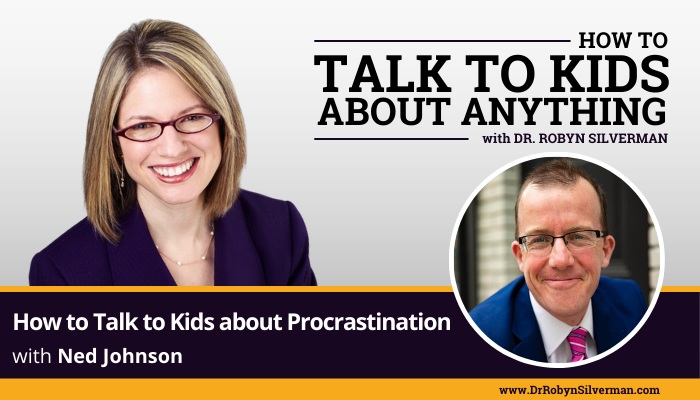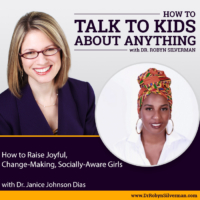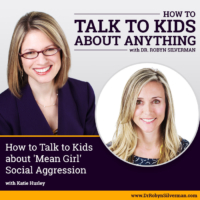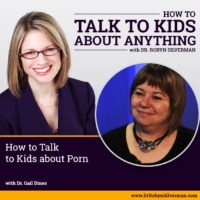Podcast: Play in new window | Download
Subscribe: Apple Podcasts | RSS | More
How to Talk to Kids about Procrastination with Ned Johnson
This enlightening podcast episode discusses about practical tips for parents to help their children understand and overcome procrastination habits with our guest Ned Johnson.
INTRODUCTION:
If you’ve heard me speak about leadership, strength-finding, or mentoring, then you have heard me talk about the 12 Ps that stand in the way of people’s success. Along with Pushback, Perfectionism, and Pandamonium—that is, I’ve lost my book, I’ve lost my file, and I’ve lost my mind, there is a big P that always elicits a big response when I speak about it in front of audiences and ask the audience to replay, “that’s me!” if it describes them. The word? Procrastination. As we are in Spring, we often see procrastination take hold- riding the coattails of spring fever as well as big projects like final exams, end-of-year papers, and planning for next year. Yes, our departing high school students who are thinking about college or jobs may be procrastinating so much, they are barely budging. We are going to talk about all of it with a friend of the show, Ned Johnson.
Bio:
Ned Johnson is a motivational coach who runs an elite tutoring service called PrepMatters. Along with Dr. William Stixrud, he co-wrote the best-selling book The Self-Driven Child as well as more recently, What Do I Say? Ned is a sought-after speaker and has appeared on How to Talk to Kids about Anything several times—and his words of wisdom were also featured in my book, How to Talk to Kids about Anything.
Important Messages:
- Yerkes-Dotson Curve: It is a bell curve and a cross, upside down, so across the bottom is physiological arousal measured in a stress hormone called cortisol that then kicks off dopamine and Norepinephrine. And then on the YA is going up and down performance. The simple idea is that typically if there’s no stress, there’s no performance, no downside for paying your taxes, probably put it off, don’t have to write a term paper, probably won’t. But then with some pressure, some increasing pressure, there is more engagement. And then of course there is a place called optimal arousal where you’re super excited. It’s pretty intense, but not too intense. And then at some point on the other side of the curve, things fall down, and then performance falls apart. So if you’re not motivated enough, if there’s not enough activation, you don’t engage optimally. If there is too much pressure and too much stress, you don’t engage optimally.
- Reasons for Procrastination: So here’s the thing with procrastination, there are two big reasons why people procrastinate. And we can think about these
 and then talk about what we could do about this. People will procrastinate because if they are ADHD or ADHD adjacent, they just don’t feel like doing the thing. They know it’s important, but they don’t feel like doing it. And so they wait for approaching deadlines to get enough pressure to get enough brain activation to finally feel like doing the thing they need to do.
and then talk about what we could do about this. People will procrastinate because if they are ADHD or ADHD adjacent, they just don’t feel like doing the thing. They know it’s important, but they don’t feel like doing it. And so they wait for approaching deadlines to get enough pressure to get enough brain activation to finally feel like doing the thing they need to do. - Internal State: My entire life is like this. This is who I am, my delightful son actually diagnosed with ADHD. On the flip side, people will often avoid doing things. They will procrastinate, they will put off, and if they are really anxious about it and feel the pain of doing it, they put it off. They put off because it makes them unhappy, and makes them feel stupid. Until at some point, the pressure of not doing the thing is greater than the pressure of doing the thing. Then they engage. You can imagine that both of these things are internal states. And so we as loving parents look and say, wouldn’t it be so much easier if you just started ahead? Because whatever, whatever. But if I’m the parent and the kid is anxious, my mom or dad doesn’t get how stressful this is for me.
- Pressure vs Motivation: When we become very controlling, we screw up executive functions. I have only asked like 37 kids and it is 100/1 so far. Every single kid has said, it just makes me not want to do my homework. So it works against the motivation that we want. I get that as a parent, you are thinking this is going to be a train wreck and you are trying to avoid train wrecks. You don’t want to see your kid get run over. But the hard part is, and this is particularly for middle school kids, it usually doesn’t help when we lean in and do this because they then avoid us. They don’t tell us the truth. They are responding to us rather than the circumstances. They are annoyed by the logical consequences when we have deprived them of the natural consequences on and on it goes.
- Cause & Effect: If you have a kid who is DH ADHD and should be medicated, great. But my feeling about this is we really want kids at the youngest possible age to learn cause and effect. Let them screw things up. Let them miss deadlines. Because there is nothing that you as a parent can say that informs them. Like say, “Oh, I’m sorry kiddo, you missed the deadline. You don’t get to be on the soccer team this season. Oh, that is painful”, and we tend to let them learn from things that are really painful.
- Handling “Last Minutes”: My son started college during COVID-19 2020, and like every university, they gave them all the extensions, and took all the grace, they were just so worried about kids that have mental health and everything else. So he had this philosophy course, lots of writing, and the Spanish class, lots of writing. So we’ve been hearing about all these papers overdue and We picked him up, and we were driving off campus. He’s of course the last child to leave campus because that’s my kid. We’re driving off campus. We’re about three miles off. I asked, Hey Matthew, I just got to ask were you able to finish up those papers that were overdue? There was a long silence from the backseat of the car, and he said Oh, well, I have five papers that are due in 48 hours. And if I get them done, I think I will be fine. If I don’t, I think I will fail two of my classes. And he managed to get these things done. And I mean, my son got more in his first year of college than I got all four years of college. He then did this again, but whose responsibility is it? Because ultimately, whose life is it?
- Whose Problem is it?: The second year, we picked him up, he was doing a second semester abroad. So he was leaving campus at the end of the first semester. My wife and my son, my daughter, have all gone off, we were going up north into Canada for some time before the Christmas holidays. And the same thing, he had the same Spanish professor, and all these papers were overdue. And I’m just like, it was like a nightmare. He says he can hit it on Friday and I’m like, dude, Friday is Christmas Eve. He was like, yeah, no, but I will get it done. I want to throttle him and I have a really high tolerance for a threat. And in the back of my head, what pops up with this little bill sticker saying, whose problem is it? Whose problem is it? Bill? Like all parents, we’re wired to help. In part, because I speak six words of Spanish, so there was not a darn thing that I could do. So every day we get up and say, Hey, we’re, we’re going to Christmas Marty and anything we can get you. He was like, no, I’m good. Should we check in and see if he wants so much? Yeah, that would be great. And we basically see him and then we see him for This child in three days writes 32 pages of papers and 20 of them are in Spanish. Oh my goodness. He got it all done.
- Getting help: Watching my son not write these research papers for two years, I thought I was going to just fall over dead when he missed the deadline. When he was going into his junior year, I said, “Hey, listen, would it be helpful to work with my colleague Kate, who’s fantastic as a writing tutor? She has done a lot of work. I think she would help you kind of be organized and break things up into pieces so it doesn’t all pile up at the end. Would you be willing to try that?” And he said, sure.
- Commitment: And so he had been meeting with her a couple of three weeks and he says, “Dad, I feel like I’m wasting your money. I’m wasting Kate’s time. We meet every Sunday at 11 and I do all this work last minute. And then I show up with her and hand it to her. And then there’s not that much for us to talk about Because they have just got it done. And I said, “Well, I really appreciate your thoughtfulness about her, her time, and my resources. Respectfully, I think it’s working beautifully because you like Kate, Kate likes you, we respect one another and you don’t want to show up empty-handed. And because you have made it a commitment, not just to yourself, but to her. You get this work done where otherwise experience suggests to me that you would have let a pile-up and then it would have really hard to do it at the end. Do you think that’s right?” He says, “Yeah, that makes sense”.
- Time Blindness: For kids who procrastinate because of ADHD, one of the typical features of ADHD is time blindness. They just think this should only take X hours and it takes three. Well, of course, there was no way he could get this in 10 minutes. He is not thinking about the ways that he won’t get it done in 10 minutes. He was then fighting you thinking of the ways he will and he was not hearing it. So for a lot of things with that, I suggest let us try and experiment. It’s not always “me being right” but see if this helps you for three days, write down how long you think it will take you to do things, and then write down how long it would take you to do this right. See where it is. And look, I can’t possibly be the expert on you, kiddo, but my experience is that sometimes you are just such an optimistic kid. I’m trying to make this up. You’re such an optimistic kid. So positive. And then, and then sometimes things don’t fully work out, you know, the best case scenario. So, let’s just try this. And then you’ll know next time if you need to, you need to spend plan 20 minutes rather than 10 minutes. Right. And of course, it’s going to be three hours, but he doesn’t know that yet. We’re so Right. That would be a big part of it.
- Let them feel a sense of control: Emotionally, when people make mistakes children included, they suffer the natural consequences of, “Oops, that could have gone better”, emotionally, we want to take their side. In your head you’re thinking, well what did you expect? You played, watched six hours of NFL hockey and you tried to dash this off between Cheerios in the bus. That is reality saying that is not helpful. Because 99% of the time they know you are wrong even though when you are right, they won’t give you the credit. The flip side to that is the whole thing is a disaster. And so emotionally, you may simply be like, oh my gosh, you must be so sad, you really wanted to do well on that. And you emotionally take their side because that is what is likely to calm their heart feelings. Bring that thinking part of their brain, the frontal cortex back online.
- Learning at the end: So couple things, one, they are more likely to actually learn from it and say “You know, I really could have…”, and also they’re more likely to own up to it, “Maybe I shouldn’t have.” But when we beat them up emotionally from their perspective, they are not going to spend all their energy trying to figure out and convince themselves why it was someone else fault rather than their own.
- Supportive Accountability: My biggest source of frustration is when I’m mad at myself for doing something, and if my wife or anyone else does not that she does this, piles on and says, why didn’t you do it? What I really want her to say is, “Oh, Ned, I’m so sorry. I know this is not what you intended and this really does suck and I know you didn’t mean this and I’m sorry it is so hard for you.” It is much easier for me to own my mistakes, but I feel like letting go of the rope pile on, right? And you’re giving like yeah, let go of the rope. And so then we, you know, we, we want to do that because we want kids to make their own decisions so that they will own their own decisions. So when they do things last minute or they miss the deadline, then if we have emotionally taken their side, we are in a position to jump in as the caring consultant and then you insert whatever thing you think might be helpful.
- Empathy and building relationships: Be empathetic, most of all. It is not like they are going to have lower stakes, And again, if for you with your spouse or me with my spouse, if I screwed things up, how receptive am I going to be to your advice? I had a conversation with a parent earlier today. I put her in tears when a friend of mine, Sheila Olson, in her book about decision making has this statistic that by the time children leave the household at the end of high school, they will on average have spent with us 90% of all the time they will ever spend with us. Think about that one. At the same time that you’re trying to help a 13-year-old figure out middle school and acne and girls and high school and all that stuff, you are also at the same time setting the foundation, the relationship that you will have with him as an adult. Once we don’t have power over our kids, it’s totally on them whether they come back or not. Have influence with your kids, not power over them. And so how respectfully we treat with talk to kids has a lot to say with what kind of relationship we will have with them as adults.
- Guiding Through Challenges: My 22-year-old took an extra class and he’s composing six scores this semester when he was telling us about this at the start of the year, my wife and I were looking at a show like, oh Lord, like how it’ll be due 10 minutes. We were thinking this was going to be a disaster. But, he believed it would be the case. He called us up two weeks ago asking if we could get on the phone. He’s going through about how kind of underwater he is. And in the back of my head, I was thinking, “Dude, this is going to happen…” but I’m not going to say that. And we say, “Ooof, that’s a lot.” And just validate and validate. And ask him, “Hey would this be helpful?” Very tentative suggestions. And he made some corrections, but most of all, it calmed his thinking. He got back online and went right back to doing the hard work to dig himself out of the hole that he dug himself into. And that’s really what we want kids to do, is to reach out for help when they could use our help and to keep working hard at digging themselves out of the holes that they were in and building up the future that we want them to have.
Notable Quotables:
- “People will procrastinate because if they are ADHD or ADHD adjacent, they just don’t feel like doing the thing. They know it’s important, but they don’t feel like doing it. And so they wait for approaching deadlines to get enough pressure to get enough brain activation to finally feel like doing the thing they need to do.”
- “When we become very controlling, we screw up executive functions. I have only asked like 37 kids and it is 100/1 so far. Every single kid has said, it just makes me not want to do my homework. So it actually works against the motivation that we want. I get that as a parent, you are thinking this is goin
 g to be a train wreck and you are trying to avoid train wrecks. You don’t want to see your kid get run over. But the hard part is, and this is particularly for middle school kids, it usually doesn’t help when we lean in and do this because they then avoid us. They don’t tell us the truth. They are responding to us rather than the circumstances. They are annoyed by the logical consequences when we have deprived them of the natural consequences on and on it goes.”
g to be a train wreck and you are trying to avoid train wrecks. You don’t want to see your kid get run over. But the hard part is, and this is particularly for middle school kids, it usually doesn’t help when we lean in and do this because they then avoid us. They don’t tell us the truth. They are responding to us rather than the circumstances. They are annoyed by the logical consequences when we have deprived them of the natural consequences on and on it goes.” - “We really want kids at the youngest possible age to learn cause and effect. Let them screw things up. Let them miss deadlines. Because there is nothing that you as a parent can say that informs them. Like say, “Oh, I’m sorry kiddo, you missed the deadline. You don’t get to be on the soccer team this season. Oh, that is painful”, and we tend to let them learn from things that are really painful.”
- “99% of the time they know you are wrong even though when you are right, they won’t give you the credit. The flip side to that is the whole thing is a disaster. And so emotionally, you may simply be like, oh my gosh, you must be so sad, you really wanted to do well on that. And you emotionally take their side because that is what is likely to calm their heart feelings. Bring that thinking part of their brain, the frontal cortex back online.”
- “When we beat them up emotionally from their perspective, they are not going to spend all their energy trying to figure out, convince themselves why it was someone else fault rather than their own.”
- “We want kids to make their own decisions so that they will own their own decisions. So when they do things last minute or they miss the deadline, then if we have emotionally taken their side, we are in a position to jump in as the caring consultant and then you insert whatever thing you think might be helpful.”
- “ At the same time that you’re trying to help a 13-year-old figure out middle school and acne and girls and high school and all that stuff, you are also at the same time setting the foundation, the relationship that you will have with him as an adult. Once we don’t have power over our kids, it’s totally on them whether they come back or not. Have influence with your kids, not power over them. And so how respectfully we treat with talk to kids has a lot to say with what kind of relationship we will have with them as an adult.”
- “We want kids to do, is to reach out for help when they could use our help and to keep working hard at digging themselves out of the holes that they were in and building up the future that we want them to have.”
Resources:
- Website: https://thenedjohnson.com/
- Instagram: https://www.instagram.com/theothernedjohnson/?hl=en
- X or Twitter: https://twitter.com/nedjohnson?lang=en
- LinkedIn: https://www.linkedin.com/in/ned-johnson-86983b4
- Facebook: https://www.facebook.com/TheOtherNedJohnson/
- Books:2021 – “What Do You Say?: How to Talk with Kids to Build Motivation, Stress Tolerance, and a Happy Home”
Link: https://www.amazon.com/What-You-Say-Motivation-Tolerance/dp/B08SP4CQ572018 – “The Self-Driven Child: The Science and Sense of Giving Your Kids More Control Over Their Lives”
Link: https://www.amazon.com/Self-Driven-Child-Science-Giving-Control/dp/07352225172006 – “Conquering the SAT: How Parents Can Help Teens Overcome the Pressure and Succeed”
Link: https://www.amazon.com/Conquering-SAT-Parents-Overcome-Pressure/dp/1403976678








